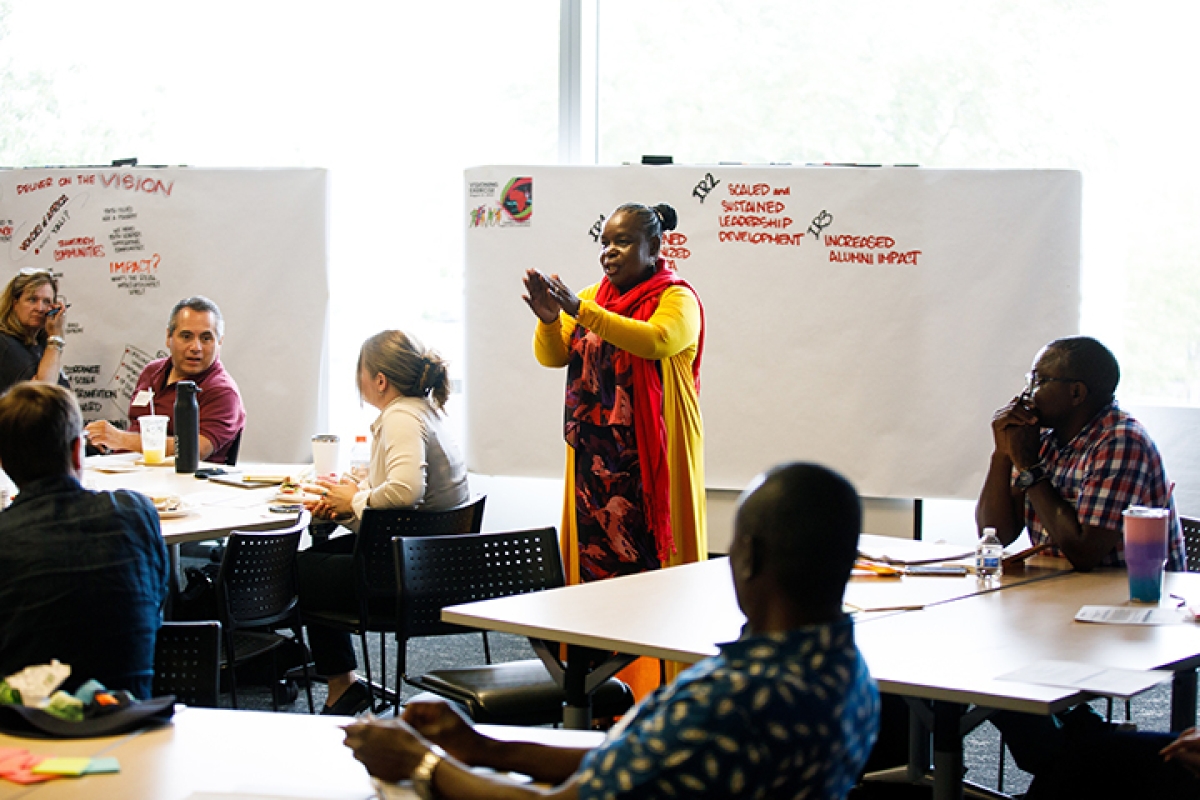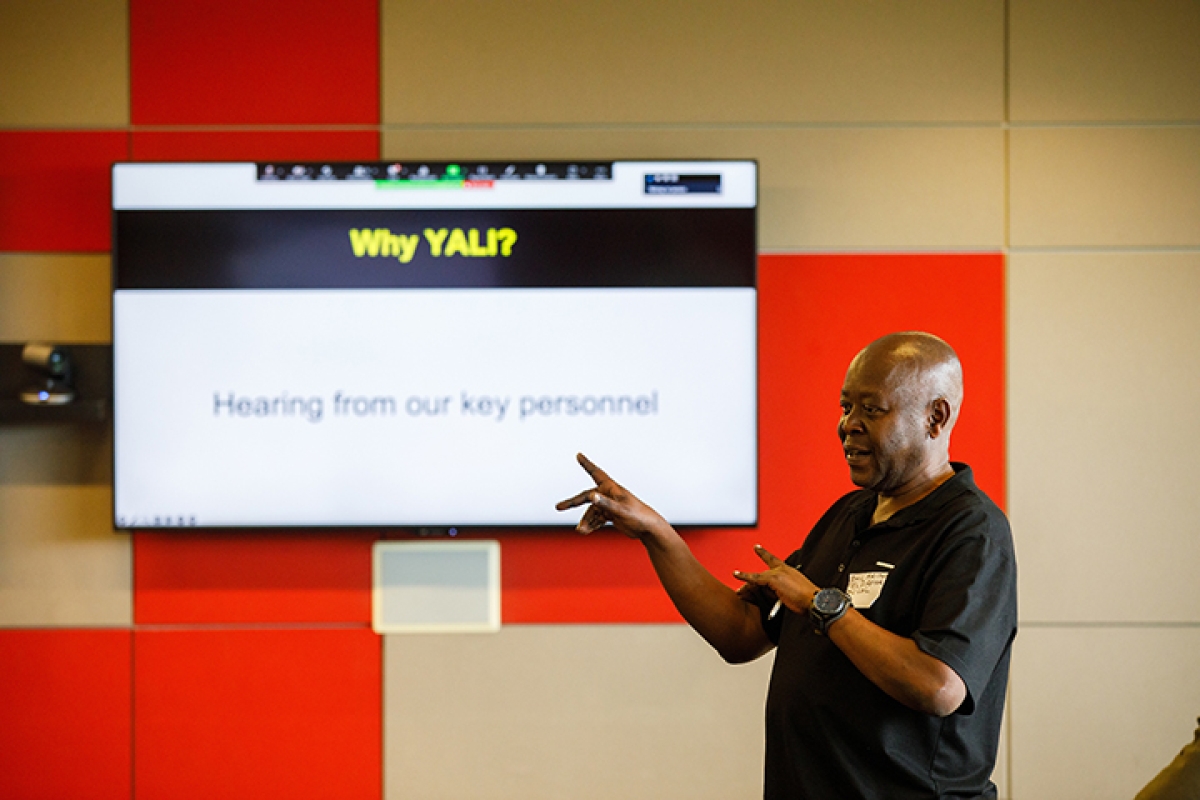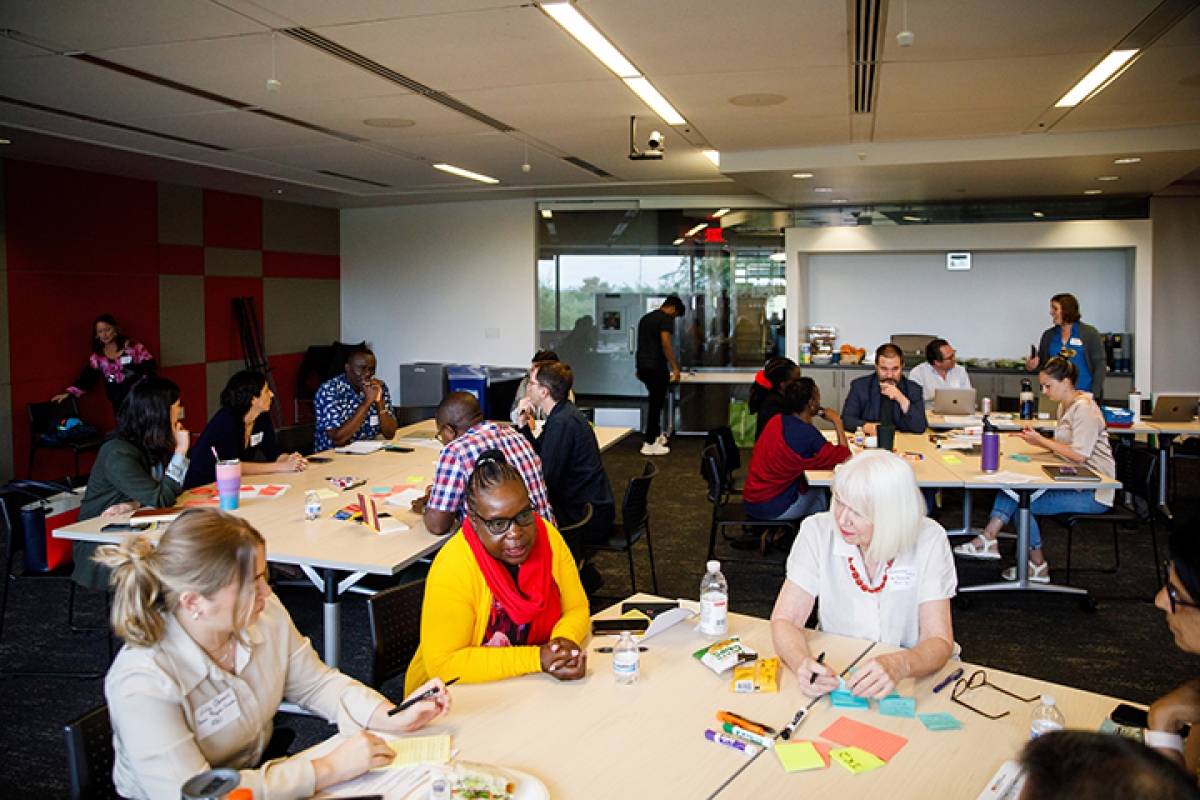ASU to lead USAID award to bolster leadership, entrepreneurial training for African youth

Africa enjoys an abundance of natural resources — arable land, renewable fresh water, vast mineral wealth and more — but its most valuable asset may be its youth.
By 2030, it's expected that 42% of the world’s 15- to 35-year-olds will live in Africa. This growing demographic is inheriting a litany of challenges, both regional and global. Successfully navigating these challenges and charting a thriving future hinge on the development of young leaders and the creation of economic opportunity.
The U.S. Agency for International Development has tapped Arizona State University to help realize that future. Backed by $80 million in funding — the largest USAID award in the university’s history — ASU is assembling a coalition to empower Africa’s youth with the tools, education and network to succeed.
The award, Young African Leaders Initiative Legacy Localization (YALI LL) will work with the Education and Youth division of USAID’s Africa Bureau to advance this goal through the YALI Africa project, which takes YALI into its next phase.
“Arizona State University is proud of the strong and future-focused global partnership we share with USAID,” says ASU President Michael M. Crow. “This award reflects our enthusiastic commitment to using all we have to create new learning opportunities and resources that support the success of learners in Africa. USAID’s growing confidence will fuel taking our efforts to a higher level.”
The YALI Africa project will be funded by USAID and implemented by ASU’s International Development Initiative, drawing on the unique capabilities of the Thunderbird School of Global Management, the Watts College of Public Service and Community Solutions, the J. Orin Edson Entrepreneurship + Innovation Initiative and EdPlus.
“I believe one of our greatest strengths as a university is the ability to not only generate knowledge but apply it to real-world challenges in novel ways,” says Sally C. Morton, executive vice president of ASU’s Knowledge Enterprise. “This project represents a tremendous opportunity for ASU to employ our problem-solving engine on a continental scale and support African youth as they chart their future on the global stage.”
Partnering with ASU are FHI 360, the African Diaspora Network, Geeks Without Frontiers, N50 and CoELIB at Egerton University in Kenya. An African team of experts will implement day-to-day activities across 49 countries in sub-Saharan Africa, operating from four hubs based in Nairobi, Kenya; Dakar, Senegal; Accra, Ghana; and Pretoria, South Africa.
“There’s no way to work through any issue in Africa — whether it’s health, food, climate — without considering and understanding how youth are going to factor in. It’s a thread running through all African issues and discussions,” says Stephen Feinson, managing director of the International Development Initiative in ASU Knowledge Enterprise.
The award follows through on last year’s U.S.-Africa Leaders Summit held in Washington, D.C., where the Biden administration announced new and expanded initiatives to empower African institutions and people. YALI was among the programs the White House renewed its investment in, pledging to invest $100 million over multiple years.
“We are thrilled to be working with Arizona State University as we continue to provide young African leaders, both women and men, the opportunity to have an impact on their communities, their countries and their continent,” says Denise O’Toole, acting YALI coordinator for USAID. “This new award will ensure that the YALI Regional Leadership Centers will provide the best leadership training opportunities to these amazing young African leaders and will also mean a much richer and more effective engagement with our more than 24,000 YALI alumni.”
Young people in Africa face a host of challenges: governmental corruption, political instability, extremism and inequality. Intensifying these issues is a lack of economic opportunity, according to Joyce Ogesi, who serves as the chief of party on YALI LL and will direct the project team in Africa.
Launched in 2010 under the Obama administration, YALI was established to address these issues by empowering young African leaders through three complementary programs: the USAID YALI Regional Leadership Centers (RLCs), the Mandela Washington Fellowship and the YALI Network.
The RLCs are free educational and leadership training hubs, located within higher education institutions, that deliver courses in civic leadership, public management and entrepreneurship for young Africans. The Mandela Washington Fellowship sponsors young African business and community leaders for six-week stays at U.S. universities for academic coursework, leadership training and networking opportunities. The YALI Network is a free, online learning portal that includes courses, videos and opportunities to earn certifications on a range of topics.
ASU was an early YALI partner; the Watts College helped develop the public management curriculum, taught courses and trained instructors for the East Africa RLC in Kenya, and hosted young leaders in the Mandela Washington Fellowship since the program’s inception in 2014.
Over the next five years, the YALI LL award aims to streamline recruitment, admissions, curriculum and communications through a new, on-continent framework called YALI Africa. YALI Africa will expand leadership training opportunities for young African leaders across the continent and build on previous successes at the four RLCs located in Ghana, Kenya, Senegal and South Africa and increase diversity among participants, expanding access to more women, rural youth and underrepresented populations. YALI LL also aims to cultivate a community where YALI alumni can connect and find mentorship and employment opportunities.
“Essentially, the end goal is a program designed by Africans, led by Africans, supporting Africans,” Feinson says.
Though the goals of the new award are ambitious, the Africa-based staff members are optimistic.
“I can see (YALI Africa) creating a movement and a force in Africa that could allow us to face our challenges together,” Ogesi says.
More Arts, humanities and education

Pen Project helps unlock writing talent for incarcerated writers
It’s a typical Monday afternoon and Lance Graham is on his way to the Arizona State Prison in Goodyear.It’s a familiar scene. Graham has been in prison before.“I feel comfortable in prison because of…

Phoenix civil rights activists highlighted in ASU professor’s latest book
As Phoenix began to grow following WWII, residents from other parts of the country moving to the area often brought with them Jim Crow practices. Racism in the Valley abounded, and one family at…

Happy mistake: Computer error brings ASU Online, on-campus students together to break new ground in research
Every Thursday, a large group of students gathers in the Teotihuacan Research Laboratory (TeoLab) in the basement of the School of Human Evolution and Social Change building on Arizona…




